How modern farming is being blamed for wildlife loss
“The natural world is in serious trouble and it needs our help as never before.”
So says renowned naturalist David Attenborough, introducing the latest State of Nature report from a coalition of more than 50 wildlife organisations, led by the Royal Society for the Protection of Birds (RSPB).
See also: Farmers spot 130 species on third Big Farmland Bird Count
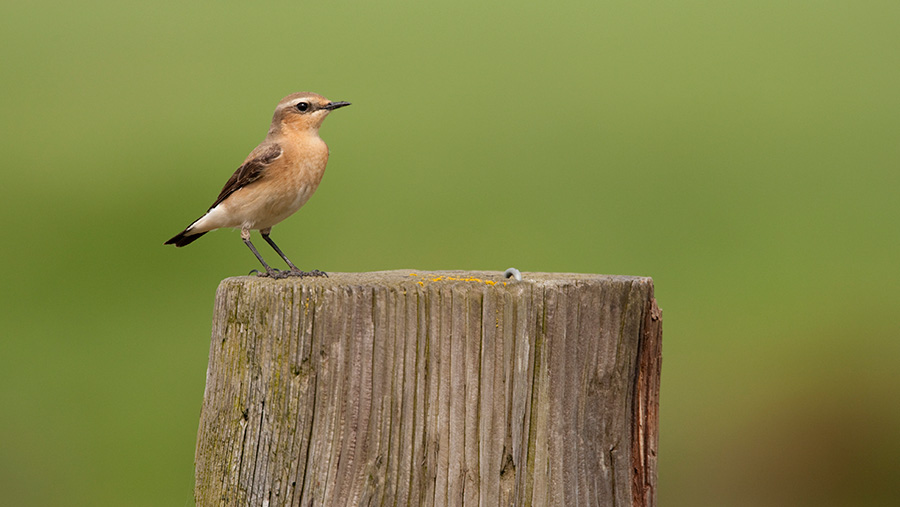
© FLPA/REX/Shutterstock
According to the report – which builds on an earlier version released in 2013 – over half of all wildlife species in the UK have declined since 1970, and the situation continues to deteriorate, albeit at a slightly slower rate.
“The UK has lost significantly more nature over the long term than the global average,” says the report.
“We are among the most nature-depleted countries in the world.”
Cause and effect
And the main cause of this crisis of nature? Modern farming, it says.
“The intensification of agriculture has had the biggest impact on wildlife, and this has been overwhelmingly negative,” it claims.
“Over the [40-year] period of our study, farming has changed dramatically, with new technologies boosting yields, often at the expense of nature.”
In particular, the State of Nature report highlights the following:
- Loss of mixed farming and change to autumn sowing of crops
- Intensification of grazing regimes, with more silage and less hay
- Loss of hedges and ponds
- Increased use of inorganic fertilisers
- Increased use of chemical sprays
But the report does offer a conciliatory tone, acknowledging that a small number of species have benefited, including herbivorous species that feed on autumn-sown crops.
It also applauds policy initiatives such as the Countryside Stewardship scheme in England, Glastir in Wales and the Rural Development Programme in Scotland.
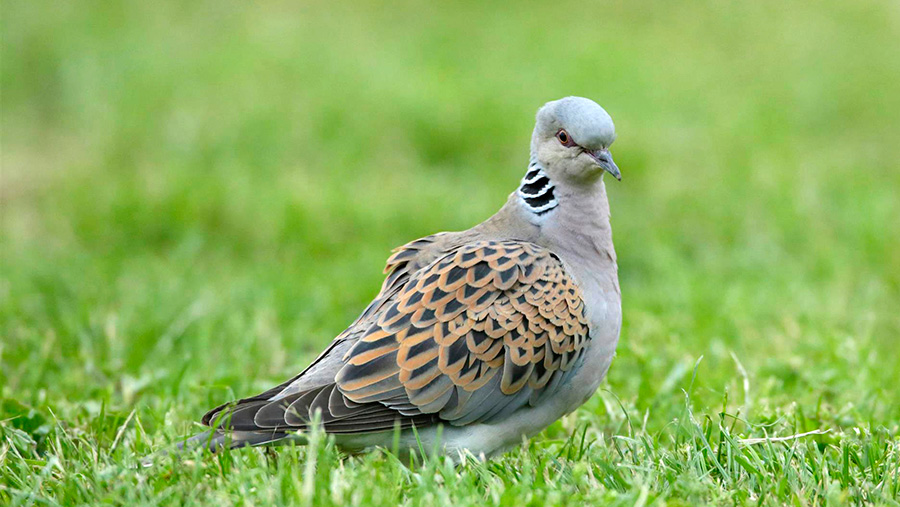
According to the State of Nature report turtle doves have been one of the hardest hit species © RSPB
Question and answer with report author’s
While the report combines research from 53 wildlife groups, Farmers Weekly put some questions to lead author, Mark Eaton, principal conservation scientist at the RSPB
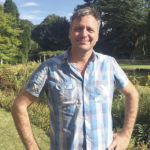
Mark Eaton was one of the report’s lead authors
Why has the report been issued so soon after the last? Is it because of the political opportunity offered by Brexit?
In the three years since the last report the volume of data has increased, and our analysis methods have become more sophisticated.
We’ve also managed to quantify what’s caused the changes.
Three years is a good gap, as these messages need repeating, but we want to avoid reader fatigue.
The report was scheduled, but Brexit does provide an opportunity to push for more environmentally-friendly policies.
The report says things continue to deteriorate – even in the shorter term. Have policies such as Environmental Stewardship and Countryside Stewardship failed?
Statistically we have shown wildlife loss is continuing, but the pace might have slowed, so it seems the mechanisms do work.
But it is hard to describe something as a success when it is just slowing the rate of decline.
They act as a brake, but need much wider uptake.
Some farmers doing great things is fantastic. But we need lots of farmers doing great things.
Given the UK is only 60% self-sufficient, shouldn’t our new farm policy focus on food rather than flowers?
It is not a question of “either-or”.
You can and should have both. We’re looking at systems that fit in with modern, efficient farming.
Our own Hope Farm proves it is possible.
Also, it goes further than wildlife protection.
Some techniques we recommend for wildlife are also good for improving soil quality, increasing crop pollination and reducing water pollution.
These are vital gains for farmers too.
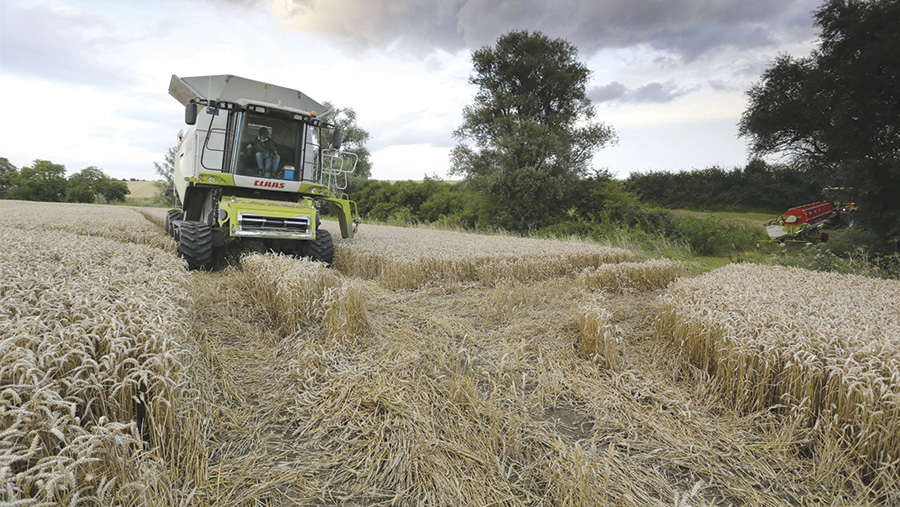
The RSPB argues its work at Hope Farm proves modern, efficient farming can go hand-in-hand with environmental aims © RSPB
Farmers still have to compete in the market and, if we cut support for food production, won’t they just seek to farm more intensively?
We recognise, without a level playing field, there is a risk of that.
But if the alternative environmental policy is funded properly and it is worthwhile for farmers to get involved, then they will.
If it is not rewarding and it is too difficult to achieve, they won’t.
We are not critical of farmers, we are critical of farm policy and the current system that has created these problems.
But we know sensitive land management can work for food and wildlife. It’s just a question of scaling things up.
As well as declines in some species, the State of Nature report also records increases – and plenty of them. Does it matter if we lose some species if we gain others?
Climate change is having an impact and yes, the UK is acting as a safe haven for species losing range in southern Europe – we are seeing new insects and birds, which is exciting.
But the UK species losing out do not have anywhere else to go.
They can’t go north, as there is less land to support them.
Yes, some are moving up mountains, but ours are not so high.
Also, the species benefiting from the changes are the generalist species, such as woodpigeons and jackdaws.
The ones we are losing are the specialists, such as orchids.
These are being squeezed out, leaving us with less variety. So it does matter.
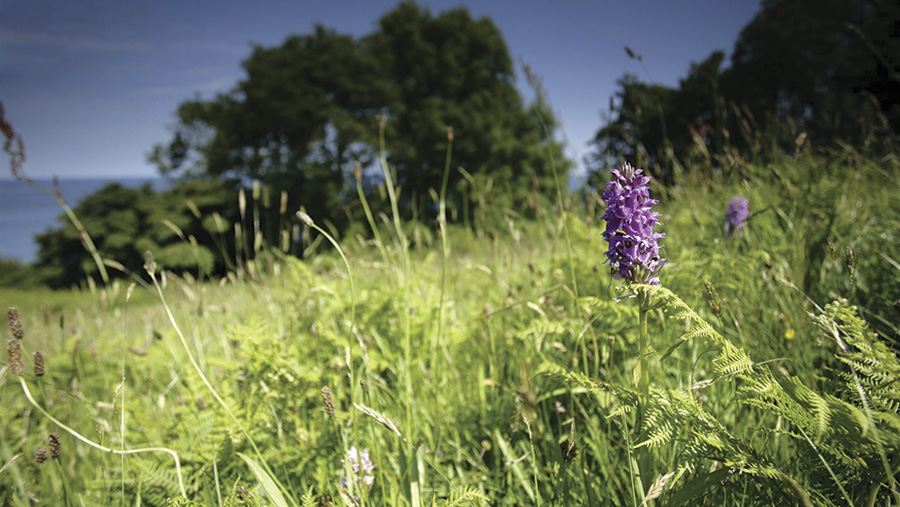
‘Fussy’ species such as orchids seem to be those most vulnerable © RSPB
What farmer representatives say
Not surprisingly, the NFU takes a somewhat different view, suggesting the State of Nature report misrepresents farmers’ actions and their commitment to working with nature rather than against it.
“The current generation of British farmers have embraced the conservation agenda,” says NFU vice-president, Guy Smith.
“Two-thirds of them have signed up for Britain’s trail-blazing agri-environment schemes.”
More specifically, the NFU makes the following 10 points:
- There has been no intensification of farming over the past 35 years in terms of fertiliser or pesticide use, or numbers of animals kept and area farmed
- As a consequence of this, the UK is increasingly reliant on imports to meet its food needs
- Farmers are “hedge planters”, not “hedge grubbers”, having planted or restored 30,000km of hedgerows over recent years
- From 1987 to 2007 the number of farm ponds increased by 18% to an estimated 234,000
- Pollen and nectar mix planting has gone up by 134% in the past two years
- 130 species of birds were recorded voluntarily by 1,000 farmers in the 2016 Big Farmland Bird count – seven for the first time
- The official Farmland Bird Indicator is not fit for purpose, since it focuses on just 19 species and is not representative of farmland biodiversity. For example, barn owls increased three-fold between 1995 and 2008, yet this is not reflected in the official index
- About half of all bird species found on farms are increasing, while the bat population is up 20% since 1999
- Generally, farming needs to increase food output, in the light of the growing UK population and the growing world population
- If we undermine the UK’s ability to produce food, other countries will take our place, often producing with less wildlife-friendly methods
Mr Smith says Defra’s agri-environment schemes have been a big success, but complains the way government measures their performance is neither fair nor accurate.
“Farmers love the natural environment of their farms and delight in the wildlife that thrives therein,” he says.
“But we will not encourage farmers to undertake conservation measures by consistently ignoring any success.”
